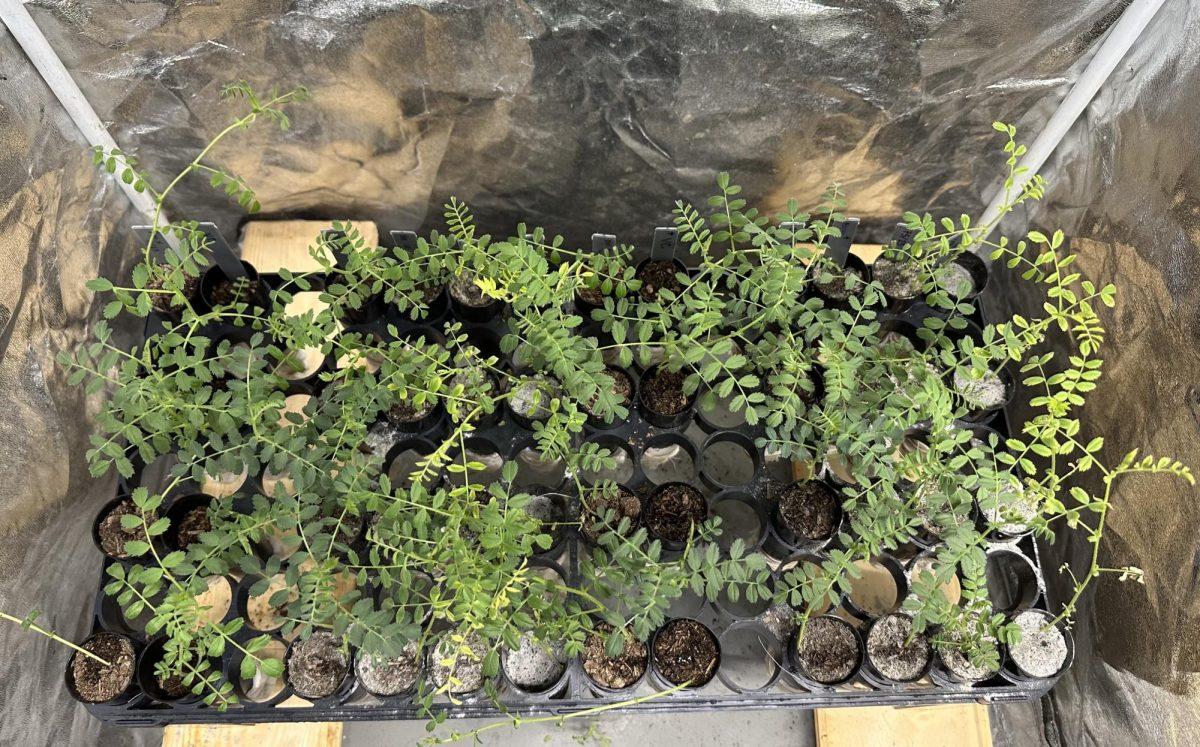One small step from a curious graduate student led to a giant leap in the field of space sustainability.
Texas A&M soils and crop sciences graduate Jessica Atkin’s research studying plant growth in lunar soil could allow scientists to take advantage of the moon’s natural resources and grow crops with fewer supplies. Atkin’s findings could also be used to grow plants in extreme environments on Earth.
Atkin’s passion for the moon and space led her to start her own project on discovering how to use lunar soil as a tool when growing chickpeas.
“I studied horticulture and had a love for the moon,” Atkin said. “So I just started making my own path and came up with this idea. I wrote a grant for NASA and brought it to Dr. [Elizabeth] Pierson and she said ‘Hey, you got something here’ and was willing to invest in me.”
Atkin said they had to simulate lunar soil, or regolith, in order to conduct their research.
“We used a lunar regolith simulant since there is not a lot of lunar regolith to test with,” Atkin said. “The simulant is made up compositionally to be accurate with what’s on the moon. However, this creates a few problems because we lack organic material. We are also dealing with no rhizosphere, no microbes, reduced atmosphere, extreme temperatures and an increased presence of radiation.”
The main problem that needed to be addressed was rejuvenating the soil and keeping the natural lunar regolith toxin levels down, Atkin said. However, Atkin said she achieved this by using fungus, which secretes a protein that binds around the heavy metal and sequesters the toxin in place.
“This reduces how much of the toxin will be taken up by the fungus, but some is still going to get by which is why the fungus has multiple mechanisms to block high concentrations from coming up,” Atkin said. “In short, this is how we are mitigating the toxicity with the fungus. The particle size was also a big problem, due to it being so fine. Everything would settle, creating a crust, which is why we added in the vermicompost to provide the nutrients and increase surface area. The fungus would then go and grab [those] nutrients for us while doing its bioremediation work.”
The chickpeas used during the research proved to be resilient and showed promise for other crops, Atkin said.
“We used the desi variety of chickpeas,” Atkin said. “Not the typical one you’d find out in the field. This is because there was such limited space inside the habitats. It did pretty well, they’re a hardy little plant that shows promise.”
The chickpeas grew in a mixture of 75% lunar regolith simulant but did have a chlorophyll deficiency. However, the fact that the chickpeas even grew is groundbreaking.
Atkin said that the research has also provided some tips on how to take care of problems back here at home.
“All of these problems can be applied on Earth,” Atkin said. “We have areas with heavy metal contamination, radiation contamination, deserts that need organic material — all of this can be applied here at home. Mastering the challenges in space opens up doors here on Earth.”
Doctoral candidate in biological fluid dynamics at Brown University Sara Oliveira Santos collaborated with Atkin on the project to figure out how to tackle the small particle size of the lunar regolith simulant.
“I offered some advice when it came to watering the plants,” Santos said. “[The] lunar regolith simulant has bad water retention properties, which didn’t allow the water to make it through as we intended. If you water them like a regular plant the water might not be able to penetrate up to the root.”
Santos said their research has the potential to help with problems arising here on Earth and is better equipping scientists to deal with these challenges.
“The research is important because it challenges us and pushes our imagination in terms of finding solutions for these problems,” Santos said. “They are also not just moon problems, they are also Earth problems. The moon is such an extreme environment and for that reason, if we study its environment, we could then have the tools to deal with extreme environments on Earth.”















